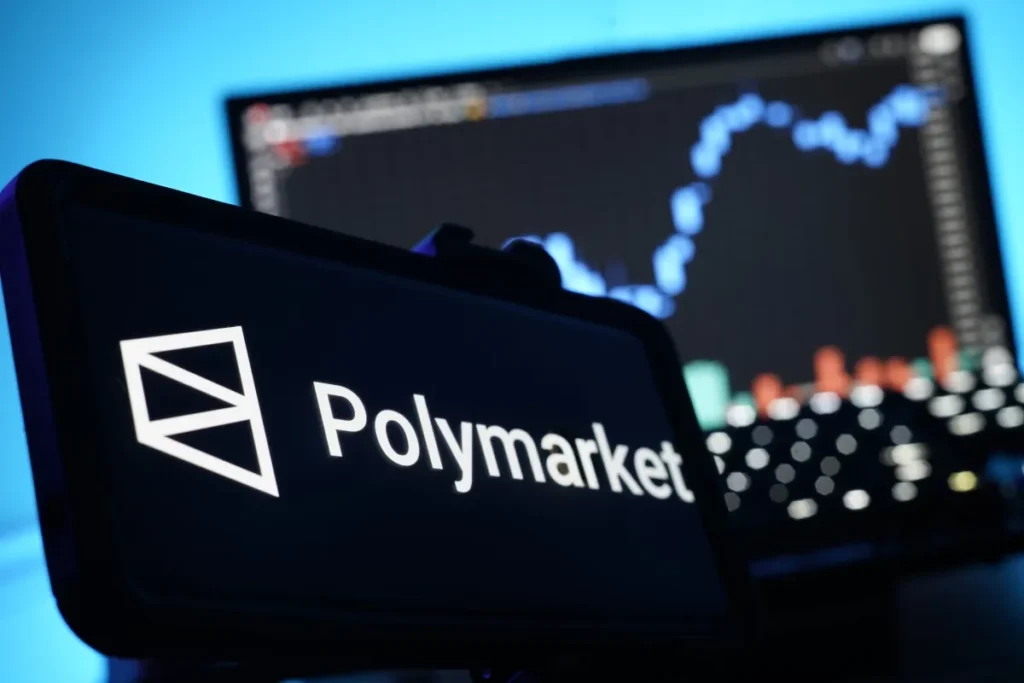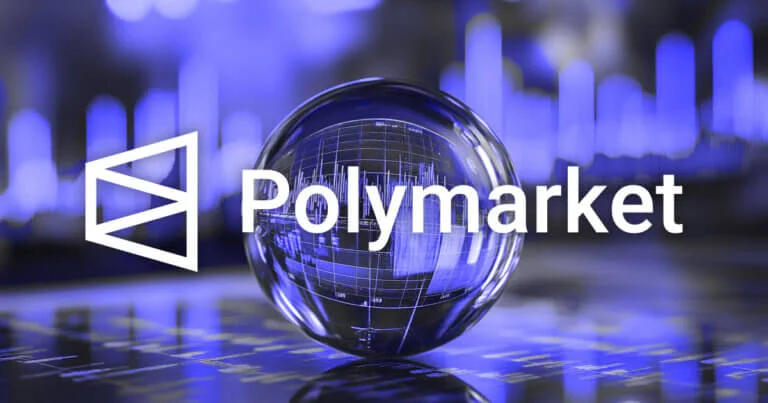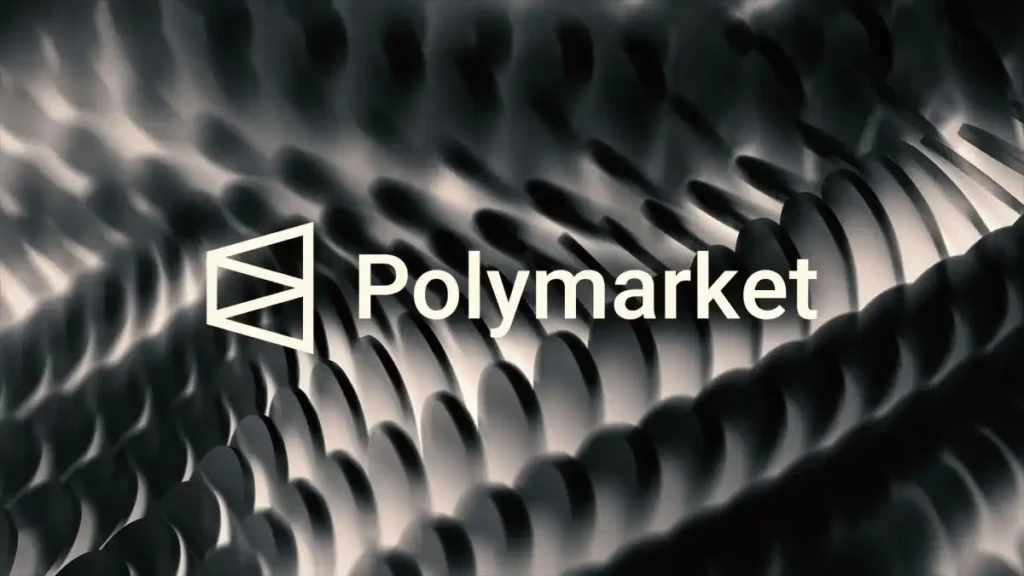Polymarket has gained attention as a decentralized prediction market platform, allowing users to bet on real-world events using cryptocurrency. But with its rise in popularity, questions about its legitimacy, reliability, and safety naturally arise. Is Polymarket legit? Is it a trustworthy platform, or does it carry risks that users should be wary of? Let us find out.
Polymarket is a decentralized prediction market platform built on blockchain technology, primarily using the Polygon network. It allows you to speculate on the outcomes of real-world events, ranging from political elections and economic indicators to cultural and sporting events. You can buy and sell shares in these outcomes using cryptocurrency, specifically stablecoins like USDC.
What is Polymarket?

Polymarket is a prediction market platform built on blockchain technology, primarily using the Polygon network. It allows users to bet on the outcomes of real-world events, such as elections, sports, or economic indicators, by trading shares in event outcomes. These shares represent probabilities, and their prices fluctuate based on market demand, reflecting collective predictions.
The platform operates with stablecoins like USDC for low-cost, transparent transactions. Users can take positions on events, hedge risks, or simply speculate, with payouts determined by the event’s resolution. Polymarket emphasizes censorship resistance and global accessibility, leveraging blockchain to ensure trustless, intermediary-free markets. It’s not a traditional betting site but a decentralized marketplace for information aggregation, often used for gauging public sentiment or forecasting events.
Is Polymarket Legit?
Yes, Polymarket is a legitimate and authentic platform. It operates as advertised with a functional blockchain-based system and a growing track record of accurate predictions. Now, the question follows: what suggests that it is legit?
1. The platform pays out successfully to users who win. It has an impeccable history of functioning operations and payouts.
2. It is backed by notable investors, thereby further authenticating its legitimacy. Founders Fund and Ethereum co‑founder Vitalik Buterin is one such notable investor.
3. Regulatory resolution in sight. It acquired QCX, a CFTC‑licensed derivatives exchange, allowing them to re-enter the U.S. market legally after ending investigations by the DOJ and CFTC.
Is Polymarket Accurate?

According to researcher Alex McCullough, the predictions of Polymarket are roughly 90% accurate one month before markets resolve, and up to 94% accurate four hours before markets resolve.
Although the accuracy of the said platform improves as markets approach their resolution, the most notable jump in accuracy occurs very late, only 4 hours before the market closes.
There have been standout moments:
- In June 2024, Polymarket was early to predict Joe Biden dropping out of the race, moving from 20% to 70% odds before any official announcement.
- In August 2024, it incorrectly showed Josh Shapiro as Kamala Harris’s likely running mate.
- In October 2024, it diverged sharply from competitors, favoring Trump by over 60%, a move later linked to four traders placing $30 million in coordinated bets.
Also, read Is Kalshi Legit and Safe? Here’s Everything You Need to Know
How Does Polymarket Work?
As a user, you purchase shares representing the outcome you are betting on. Once the event takes place, shares of the correct outcome are redeemed for $1, while shares of the wrong outcomes become worth $0. Here is a step-by-step guide on how Polymarket works:
1. Market Creation
Market creation is the first step. Markets are created based on “Yes” and “No” questions about real-world events.
Each question has a set resolution date and is governed by Polymarket’s Oracle system to determine the final outcome.
2. Buying Shares
As a user, you buy shares in either “Yes” or “No” for a particular market. Prices range from $0.01 to $1.00, reflecting the current probability of the event. You can buy multiple shares depending on your belief and budget.
Note: Currency Used: USDC. It is a stablecoin on the Polygon network.
3. Trading
This is one of the most important aspects. The prices are not static but keep on moving dynamically based on supply and demand. You can sell your shares at any time before resolution to lock in a profit or cut losses. Traders often speculate on price movements, like in a crypto or stock market.
4. Event Resolution
After the event concludes, the outcome is determined by Polymarket’s Oracle system. If your shares are in the correct outcome, each share pays $1.00, and if you are wrong, you get $0.
5. Withdrawing Funds
Winnings can be claimed directly to your crypto wallet. From there, you can swap USDC for other tokens or cash out via an exchange.
How to Get Started With Polymarket?

If you want to start trading with Polymarket, the first thing you need to have is a cryptocurrency wallet loaded up with some tokens. You can load your wallet with stablecoins such as USDC or USDT for the reason that they stay stable at a price of $1 and you don’t have to worry about volatility.
After you buy some USDC or USDT, you must withdraw these stablecoins to your own wallet. You can use any of the wallets available. However, some of the highly recommended wallets for Polymarket are:
- MetaMask
- Phantom
- Coinbase Wallet
When it comes to USDC or USDT from your crypto exchange account to your wallet, you can use the network convenient to you. Polymarket supports both USDC and USDT on these four networks:
- Ethereum
- Base
- Arbitrum
- Polygon
When your wallet is loaded with some stablecoins and some tokens to pay for transaction fees. Follow the steps below:
- Connect to Polymarket by clicking “Sign Up” on the top right of the Polymarket website.
- Select “Your Wallet.”
- Approve the “sign-in request” in your wallet.
- Click the “Deposit” button and select the token you want to deposit and the network you want to use it on. Make sure it matches the token you have in your wallet.
How Does Polymarket Make Money?
Polymarket, as a platform, does not charge any fees. It is not focused on monetization. Despite this, you will need to pay some transaction fees when using the platform, as blockchain validators require fees to be paid before they process transactions.
The company operates on the funds it receives from venture capital investors. Besides liquidity and market-making services are some other means through which the company earns. Having said that, the company is thinking of introducing fees at some point in the future to start generating revenue.
Pros and Cons of Polymarket

The pros and cons of Polymarket can be summed up as under:
Pros
- It has a strong track record, correctly forecasting events like the 2024 U.S. presidential election and Biden’s withdrawal, often outperforming traditional polls.
- It is built on the Polygon blockchain with smart contracts, ensuring secure, transparent transactions and non-custodial fund control for users.
- It allows betting on diverse real-world events, including elections, economics, and pop culture, using USDC, with share prices reflecting market sentiment, which is priced $0–$1.
Cons
- It operates in a legal gray area, banned in the U.S. and countries like France, Belgium, Poland, and Singapore due to gambling law violations. U.S. users risk legal issues using VPNs to bypass restrictions.
- Frequent user reports of losses due to vague market criteria or resolutions not aligning with real-world events, raising concerns about fairness and accountability.
- There are certain ethical concerns as it allows betting on sensitive topics wars, public health, and deaths, which critics argue commodifies tragedy and creates perverse incentives.
Ratings of Polymarket
Here is how Polymarket is rated by different rating platforms:
Trustpilot
Polymarket’s ratings are heavily negative on Trustpilot. It has a rating of 1.3 stars out of 5. The rating is driven by accusations of market manipulation, unfair resolutions, and lack of transparency, with 90% of reviews giving 1 star.
Note: Polymarket’s Trustpilot profile is currently closed for new reviews due to heightened media attention, likely stemming from its 2024 election coverage and regulatory developments.
2. Scamadviser
Scamadviser review of polymarket is positive. Scamadviser’s automated analysis of 40 data points, such as domain age, technology used, and company location, gives the platfrom a high trust score, suggesting it is “likely to be legit” and safe for use. The platform’s 22-year domain age and use of secure technology contribute to this score.
So, Is Polymarket Legit? Final Take

Polymarket, a decentralized prediction market platform launched in 2020, has sparked debate about its legitimacy. Built on the Polygon blockchain, it allows users to bet on real-world events using USDC, with transparent smart contracts and a track record of accurate predictions.
Polymarket is legit in the sense that it’s a functioning platform with real technology, institutional backing, and accurate predictions. It’s not a scam designed to steal your money outright. But “legit” doesn’t mean “trustworthy” for everyone. The manipulation risks, vague market criteria, and user horror stories make it a high-stakes gamble, especially for subjective bets. Regulatory uncertainty, despite recent progress, means legal risks, particularly for U.S. users dodging bans with VPNs.
Also, read Is Survey Junkie Legit for Making Real Money Online?
Frequently Asked Questions
1. Is Polymarket legitimate?
Polymarket operates transparently on blockchain technology, with publicly verifiable smart contracts and a non-custodial model, reducing counterparty risk.
2. Is Polymarket safe to use?
Polymarket is generally safe due to its non-custodial nature, meaning users control their funds via crypto wallets. However, risks include smart contract vulnerabilities, phishing scams, and user errors with wallet management.
3. How does Polymarket ensure fair outcomes?
Polymarket uses trusted data sources and oracles to resolve markets based on event outcomes. Its blockchain-based system ensures transparency, but rare disputes over ambiguous market definitions can occur.